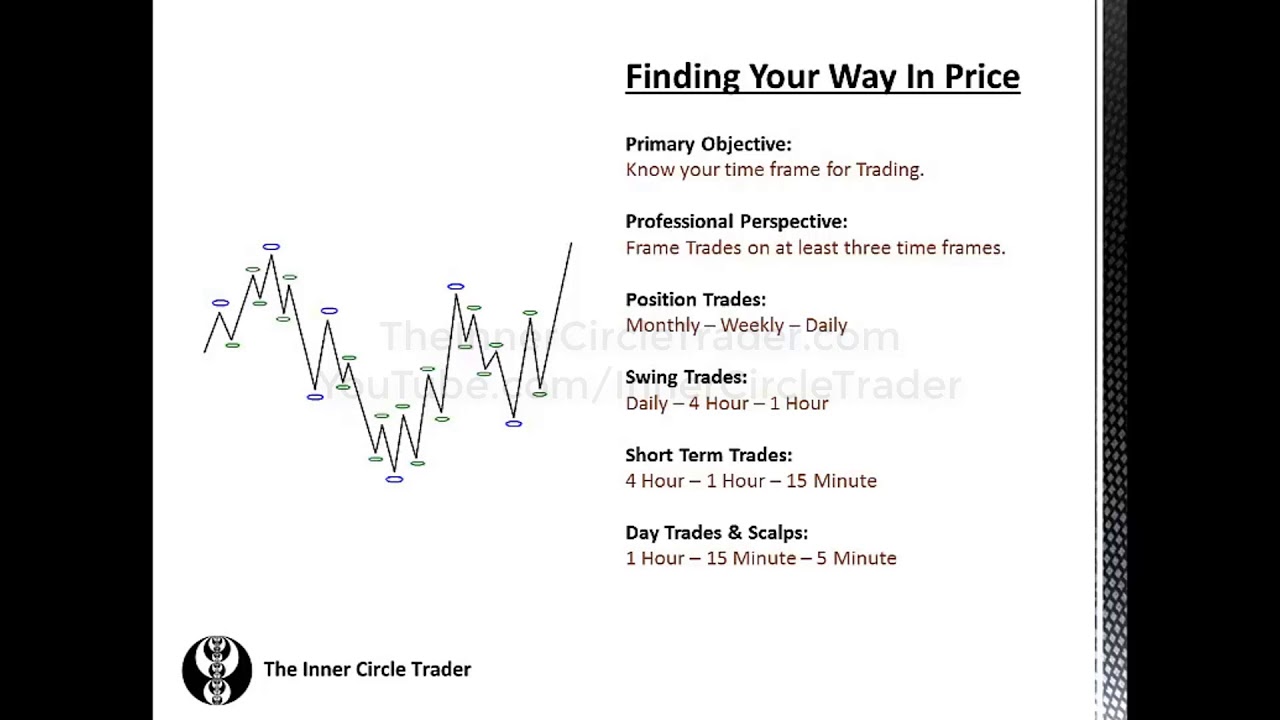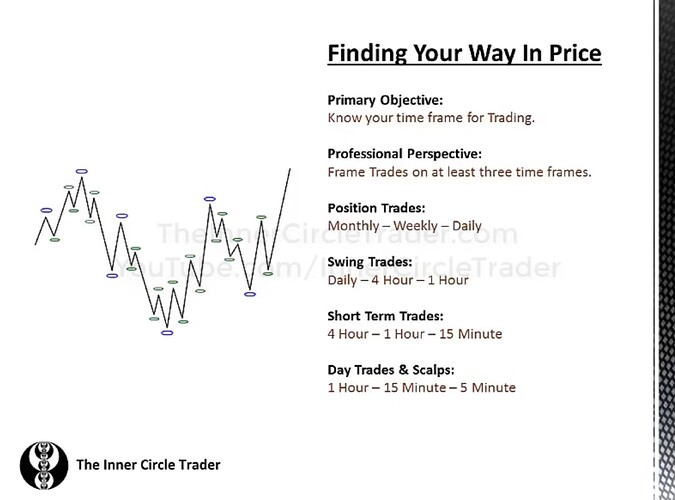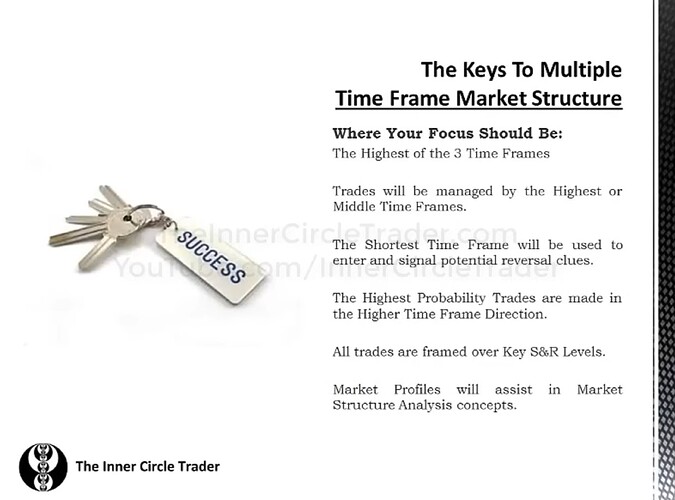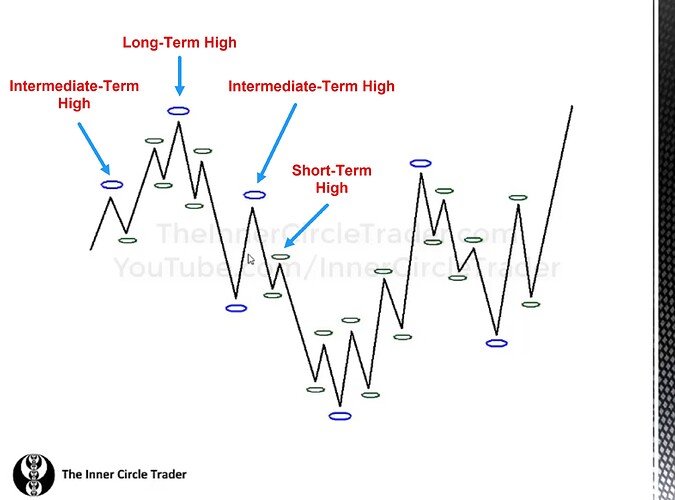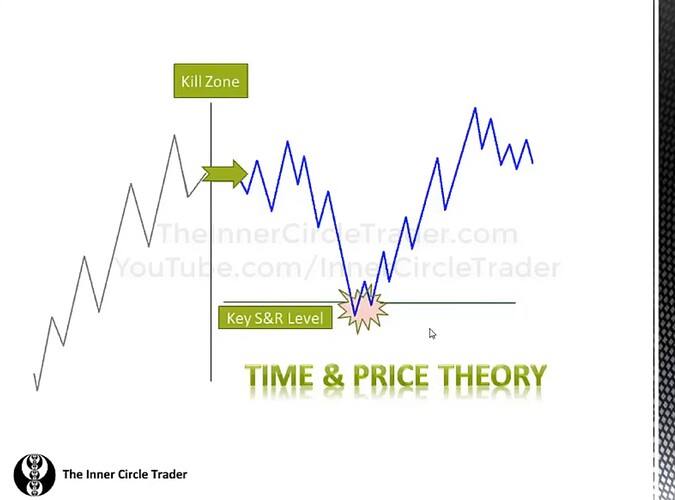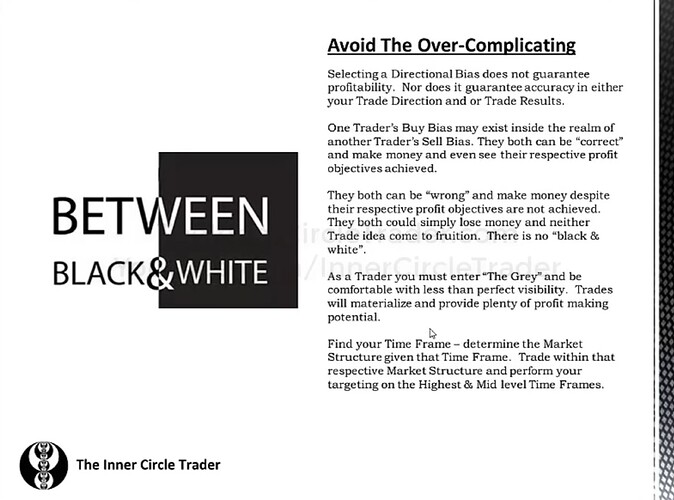Notes
- This lesson is designed to help traders determine trade direction.
- Each trading style requires a different approach and understanding of time frames.
- New traders should start with short-term trading or day trading. These styles provide immediate feedback and help build confidence.
- Scalping is an inappropriate trading approach for a novice trader.
- Trade duration by trading style (according to Michael):
- Position trades - 6 months to a year.
- Swing trades - One week to 6 months.
- Short-term trades - From one day to a week.
- Day trades - Less than a day.
- Trades need to be framed using at least three time frames.
- Recommended time frames by trading style:
- Position trades: Monthly, Weekly, Daily.
- Swing trades: Daily, 4-Hour, 1-Hour.
- Short-term trades: 4-Hour, 1-Hour, 15-Minute.
- Day trades & scalps: 1-Hour, 15-Minute, 5-Minute.
- The highest time frame determines the overall trend (directional bias). It can also serve for trade management.
- The medium-term timeframe is used to manage trade.
- The shortest time frame is intended to time the trade and identify signs of a possible reversal.
- Understanding support and resistance levels is crucial for determining directional bias.
- Market profiles (trending, reversal, consolidation) are essential for analyzing market structure.
- Market structure shifts are indicated by breaking short-term swing lows or highs.
- Higher time frame resistance or support levels help anticipate future price movements. These are the places where we look for price reversals.
- We use higher time frames to identify significant levels and refine them with mid- and shorter-term charts.
- In bullish scenarios, we look for buying opportunities at key support levels within kill zones.
- In bearish scenarios, we look for selling opportunities at key resistance levels within kill zones.
- When the price reaches key levels, various entry techniques, such as Optimal Trade Entry, Reflection, Grail, or Stinger, can be used.
- Directional bias helps avoid overcomplication.
- Bias does not guarantee accuracy or profitability. Trading is about probabilities, not certainties.
- Both long and short trades can be profitable on the same day, depending on the trader’s style and time frame.
- Living in the gray area:
- Be comfortable with uncertainty in trades.
- Don’t expect perfect scenarios or 100% accuracy.
- Focus on consistent, controlled profits with realistic expectations.
Essentials To ICT Market Structure - Time Frames
Essentials To ICT Market Structure - The Keys To Multiple Time Frame Market Structure
Essentials To ICT Market Structure - Advanced Market Structure
Essentials To ICT Market Structure - Time And Price Theory
Essentials To ICT Market Structure - Avoid The Over-Complicating
Next lesson: ICT Forex - Market Maker Primer Course - The ICT Asian Killzone
Previous lesson: ICT Forex - Market Maker Primer Course - Considerations In Risk Management
